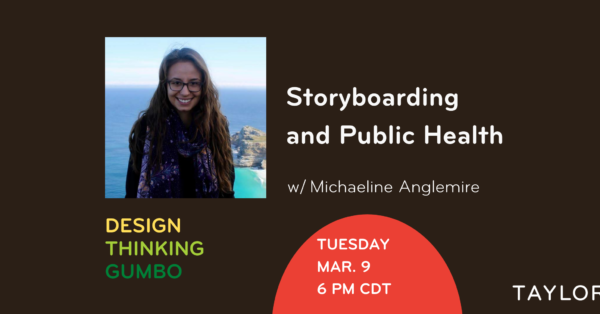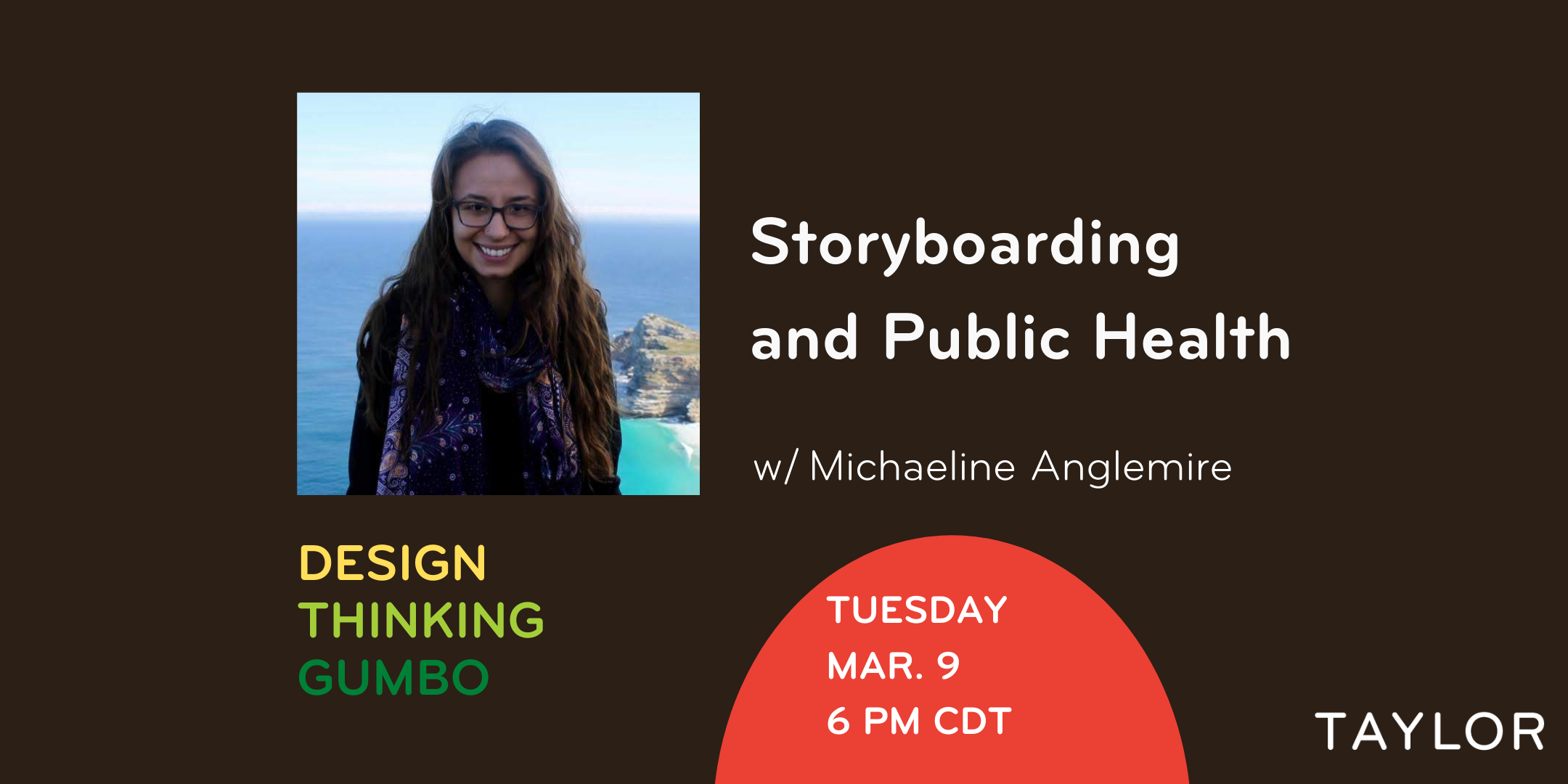About the Workshop
On March 9 2021, Storyboarding with Michaeline Anglemire demonstrated how to use the practice storyboarding virtually and suggested approaches to using storyboarding in public health settings. The goal of this workshop was to learn how to use storyboarding within the scope of public health in the age of the COVID-19 pandemic.
Overview
Through a brief lecture defining the idea of a storyboard, the applications of storyboarding within public health and design thinking, and examples of storyboarding in action, participants were provided with the information they needed to understanding the concept of storyboarding and how it could be applied in various settings, both virtual and in-person, to further public health goals, especially in the context of the pandemic and combatting vaccine misinformation. Participants were placed into breakout rooms to provide an opportunity to apply the skills they learned about storyboarding during the lecture. All activities were carried out using Mural, an interactive web-based collaborative space.
- For the first activity, participants were placed into breakout rooms to reflect on and answer the following questions using Mural:
- Do you think vaccine distribution could be improved? How so?
- Do you have friends or family who have told you they are afraid of getting the vaccine? What are they afraid of?
- How would you address someone’s concerns about getting the vaccine?
- For the second activity, participants were placed back into their same breakout rooms, and were this time tasked with designing a storyboard that either depicted how someone could go about getting the COVID-19 vaccine if they want to, or a storyboard that depicted how to talk to somebody who might have fears about receiving the COVID-19 vaccine.
- This workshop ended with a discussion surrounding the benefits and limitations of storyboarding, how storyboarding could be utilized within the many disciplines represented by the various participants on the call, and how storyboarding could be used to reach people who are historically difficult to reach
Reflections from Michaeline
This workshop presented an interesting planning challenge for the team, as we received a request a few days before the event for deaf and hard of hearing accessibility services. Together with Flora Petterson and Dr. Lesley-Ann Noel, we quickly familiarized ourselves with the accessibility services available through Tulane, which we discovered included ASL interpretation services and live closed-captioning. This request shined a spotlight on our need to make sure we are always considering accessibility as we plan our workshops, and we got in touch with a Dr. Eunice Ofori, an instructional technology designer at Tulane who advised us about how to make our PowerPoint slides more visually accessible.
With respect to the workshop, it was incredible to see how everyone was able to think outside the box in their brainstorming. Participants addressed some extremely important challenges to vaccine distribution, which validated the idea that design thinking methods can be used across many different disciplines to generate solutions to seemingly complex problems, because a designer believes that anything is possible!
About the Series
Design Thinking (DT) Gumbo is a series of one-hour workshops on a variety of methods that can be used in design research. Each workshop will introduce a method, share examples of its use in other settings, and include space for participants to practice the method together.
- Think of these methods as ingredients to make your design thinking work much more rich and flavorful. Try out the different ingredients and see which ones appeal the most to your palate.
- This semester all of our method workshops will focus on understanding people’s experience of the coronavirus pandemic.
- DT Gumbo is a project of the design thinking program of the Phyllis M. Taylor Center for Social Innovation and Design Thinking at Tulane University.
- All workshops are co-facilitated by Dr. Lesley-Ann Noel and a Taylor Center Design Thinking Graduate Assistant.

